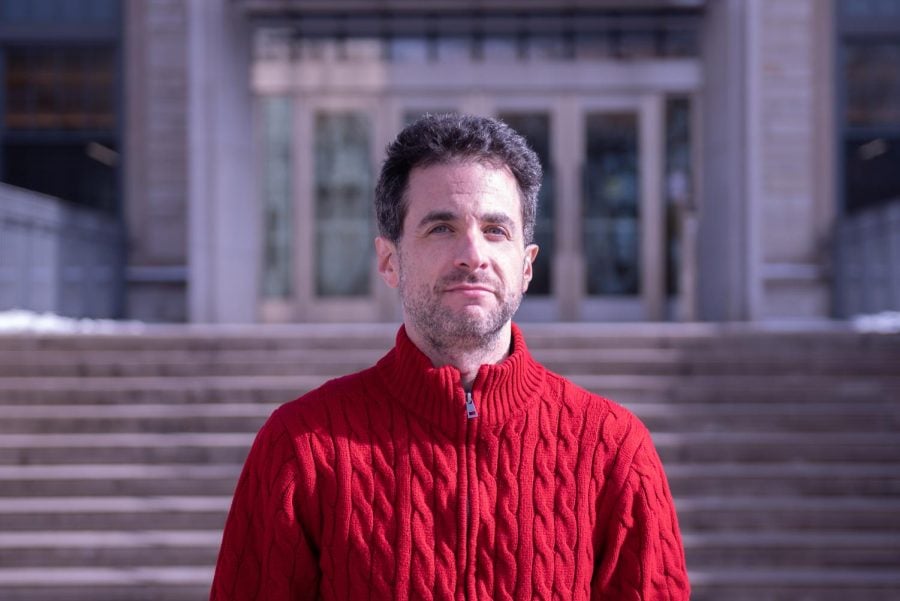Jewish and Israel Studies Prof. Scott Abramson aims to represent both sides of Israel-Palestine conflict in new course
Madison Bratley/Daily Senior Staffer
Jewish and Israel Studies Prof. Scott Abramson aims to teach his class on the Israeli-Palestinian conflict by focusing on each perspective, rather than synthesizing narratives.
February 6, 2023
When Jewish and Israel Studies Prof. Scott Abramson proposed a course on the Israeli-Palestinian conflict last year, he knew the class would challenge him and his students in unique ways.
Having taught a similar course at UCLA, Abramson said he was familiar with the carefulness necessary to teach the class effectively and avoid polarizing students.
“I think anyone who dares to teach this subject treads in a minefield,” Abramson said. “A certain delicacy is required.”
History 200: The Israeli-Palestinian Conflict, which meets for 80 minutes Tuesdays and Thursdays, aims to detail areas of contention between Israeli and Palestinian people. The course teaches about the emergence of Israel and Palestine before detailing conflicts.
Due to the global debate surrounding the moral implications of land ownership and acquisition of Palestine — one of the central components of the conflict — Abramson has emphasized not appealing to an emotional or moral judgment.
Medill sophomore Isabela Lisco, a student in Abramson’s class, said she was concerned the class would sacrifice nuance to avoid addressing the roots of the discussion.
After spending time in the course, she said she appreciates Abramson’s ability to delve into the details of the conflict while maintaining an “objective” stance.
“He’s intentionally putting himself in the hot seat in the pursuit of academic excellence,” Lisco said. “I admire that.”
In order to do justice to each them, Abramson said he focuses on teaching the Israeli and Palestinian perspectives separately, rather than trying to synthesize them.
He analyzes the same issue in two juxtaposed presentations, he said, each corresponding to a different side of the conflict and contextualized in their respective cultures.
“I look at each narrative on its own terms because I think it’s impossible to reconcile these discrepant narratives,” Abramson said.
While Abramson will be leaving Northwestern in August at the conclusion of his postdoctoral fellowship, he said he hopes the course will launch a long-term exploration of the histories.
Weinberg sophomore Sarah Abdulwahid, also a student in the class, said she feels the course’s structure of focusing on Israel for one lecture and Palestine in another reflects Abramson’s desire to be fair in the time he spends on each perspective.
“I like how the entire course in general is helping me kind of analyze the conflict through a historical lens,” Adulwahid said. “(It has) allowed me to gain a richer view of both perspectives on the conflict.”
Email: [email protected]
Related Stories:
— EFBL and Jewish Voice for Peace hold teach-in on Palestine and Israel in Reclaim the Block Party
— Community members gather to honor lost Palestinian lives in Students for Justice in Palestine vigil
— Former Israeli Ambassador to U.S. speaks about changing Middle East












